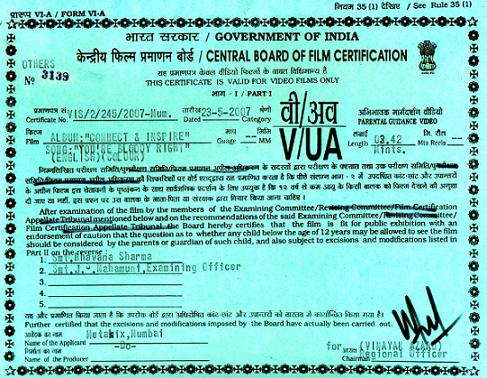Narayan Kamble is a teacher, social activist and protest singer. He is arrested on the charge of prompting Vasudev Pawar, a manhole worker who allegedly committed suicide after being influenced by one of Kamble's protest songs. Lawyer Vinay Vora defends Kamble, who is tried in the court and granted bail. Kamble admits to have sung several songs about suicide, but cannot remember if he sang any on the day of the suicide. He also denies any intention to provoke someone to commit suicide. A witness testifies that he saw the manhole worker singing Kamble's song. In the next hearing of the case, the investigating officer links Kamble with an incarcerated man, Ashwin Bhagat, through a letter, accusing them of planning illegal activity in the city. Vora explains to the court that Bhagat was requesting Kamble to take care of his ailing mother while he was in jail. Nutan, the public prosecutor, informs the court that Kamble possessed two banned books. Vora replies that one book is on Yoga and the other one is a critique of certain rituals of the Goyamari sect. Vora is later beaten by some Goyamaris. Pawar's widow confesses in court that her husband used to clean the manholes without any safety equipment and had lost one eye from exposure to poisonous sewer gases. She further confesses that he was also an alcoholic, but never talked about committing suicide. She denies his intentions of suicide or having heard Kamble's name before. Vora reads the autopsy report which indicates Pawar died as a result of respiratory failure due to inhalation of hydrogen sulphide, with no sign of self-harm. He also says that the witness who testified against Kamble is a stock witness who has been testifying in several other cases. Considering Kamble's deteriorating health and the lack of evidence, Kamble is granted bail in the amount of ₹100,000 (US$1,400), which Vora pays on his behalf. Kamble is then subsequently arrested on charges of conducting seditious camps under the cover of folk-artist workshops, and is remanded to police custody. Kamble claims the charge and the evidence against him are fabricated and Vora pleads to reconsider the arrest as it will pose a severe risk to Kamble's health; the judge tells Kamble to appeal to the High Court. Later, the judge is shown enjoying a holiday with his family.
Narayan Kamble is a teacher, social activist and protest singer. He is arrested on the charge of prompting Vasudev Pawar, a manhole worker who allegedly committed suicide after being influenced by one of Kamble's protest songs. Lawyer Vinay Vora defends Kamble, who is tried in the court and granted bail. Kamble admits to have sung several songs about suicide, but cannot remember if he sang any on the day of the suicide. He also denies any intention to provoke someone to commit suicide. A witness testifies that he saw the manhole worker singing Kamble's song. In the next hearing of the case, the investigating officer links Kamble with an incarcerated man, Ashwin Bhagat, through a letter, accusing them of planning illegal activity in the city. Vora explains to the court that Bhagat was requesting Kamble to take care of his ailing mother while he was in jail. Nutan, the public prosecutor, informs the court that Kamble possessed two banned books. Vora replies that one book is on Yoga and the other one is a critique of certain rituals of the Goyamari sect. Vora is later beaten by some Goyamaris. Pawar's widow confesses in court that her husband used to clean the manholes without any safety equipment and had lost one eye from exposure to poisonous sewer gases. She further confesses that he was also an alcoholic, but never talked about committing suicide. She denies his intentions of suicide or having heard Kamble's name before. Vora reads the autopsy report which indicates Pawar died as a result of respiratory failure due to inhalation of hydrogen sulphide, with no sign of self-harm. He also says that the witness who testified against Kamble is a stock witness who has been testifying in several other cases. Considering Kamble's deteriorating health and the lack of evidence, Kamble is granted bail in the amount of ₹100,000 (US$1,400), which Vora pays on his behalf. Kamble is then subsequently arrested on charges of conducting seditious camps under the cover of folk-artist workshops, and is remanded to police custody. Kamble claims the charge and the evidence against him are fabricated and Vora pleads to reconsider the arrest as it will pose a severe risk to Kamble's health; the judge tells Kamble to appeal to the High Court. Later, the judge is shown enjoying a holiday with his family.
कोर्ट
Court
अदालत
Details
Mis Spell Name
- Court
Genre
- Drama
Production House
- NULL
Producer
- Vivek Gomber
Director
- Chaitanya Tamhane
Composer
- Sambhaji Bhagat
Censor Date
- 04/09/2014
Censor Year
- 2015
Released date
- 17/04/2015
Released Year
- 2015
Censor Board Details (Central Board of Film Certification)

Certificate No :
- UA 0000
Certificate Date :
- 04/09/2014
Office :
- Mumbai
Guage :
- -
Length :
- 9135 Feet 3045 Meters
Duration :
- 116 Minutes
Reels :
- 10
Color :
- Coloured
Native Language :
- Hindi
Dubbed Languages:
- Another Language
- Producer : Vivek Gomber
- Director : Chaitanya Tamhane
- Writer : Chaitanya Tamhane
- Screenwriter- screenplay : Chaitanya Tamhane
- Dialog Writer : Sambhaji Bhagat
- Editor : Chaitanya Tamhane
- Composer : Sambhaji Bhagat
- Lyricist : Sambhaji Bhagat
- Actress : Vira Satidhar , Geetanjali Kulkarni
- Actor : Vivek Gomber


